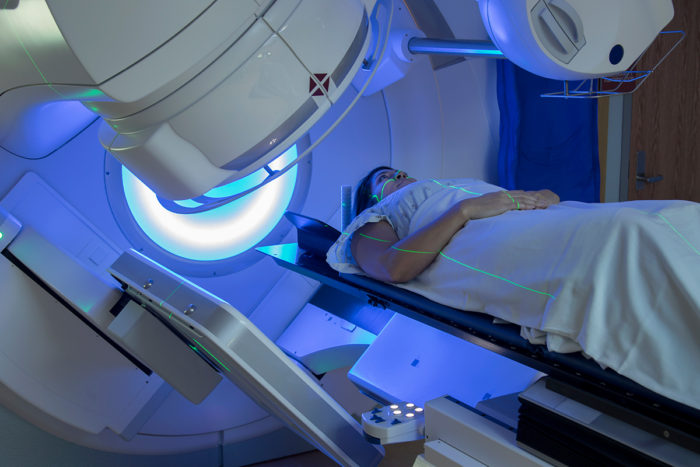It’s safe to use skin creams before radiation therapy
Skin creams do not increase radiation doses for cancer patients
 Getty Images
Getty ImagesA new study demonstrates that patients can safely use skin creams before undergoing radiation therapy. This contradicts common advice from radiation oncologists, according to researchers at Washington University School of Medicine in St. Louis and the University of Pennsylvania.
Radiation therapy for different kinds of cancer can damage the skin, so patients undergoing such treatment often are advised to apply creams or ointments to help relieve any resulting pain and inflammation. However, such patients long have been told to avoid using these products in the hours before undergoing a radiation treatment. Radiation oncologists believed creams and ointments would increase the radiation dose delivered at the skin surface.
More recent advances in radiation therapy, however, likely have made these recommendations obsolete, according to a new study from Washington University School of Medicine in St. Louis and The Perelman School of Medicine at the University of Pennsylvania. The data provide evidence that only an extremely thick layer of cream or ointment — thicker than any patient surveyed reported applying — increases the radiation dose enough to cause concern.
Applications of creams or ointments 3 millimeters or greater in thickness should be avoided, according to the researchers. But they found that applications in the 1 mm to 2 mm range, which are more common, are safe. When shown a 3-mm layer of cream, patients said they had never applied that much, the researchers noted.
The study is published Oct. 18 in JAMA Oncology.
“We want patients to know that it is fine to apply thin or moderate amounts of the topical agent of their choice to treat dermatitis stemming from radiation treatments,” said first author Brian C. Baumann, MD, a Washington University assistant professor of radiation oncology. “Patients can use these products regardless of the timing of their radiation therapy.”
The researchers surveyed patients and radiation oncologists to determine whether it is still common for patients to be advised to avoid topical skin therapies before they undergo radiation therapy. According to surveys of 133 patients and 108 doctors, more than 83 percent of patients received this message, and 91 percent of doctors reported giving that advice.
The study included patients with several cancer types. Most patients surveyed had been diagnosed with breast cancer (87 percent), but other patients had diagnoses of different tumors, including head and neck, lung and anal cancers.
The researchers measured the radiation dose at the surface of a material similar to human tissue that was covered with topical agents of differing applied thicknesses. Only with the thickest applications did the radiation dose significantly increase. They also measured doses in mice. The researchers found no additional DNA damage or cell death in the skin of mice that were irradiated in the presence or absence of creams of varying thicknesses.
The researchers studied an over-the-counter petroleum-based ointment named Aquaphor that often is recommended to radiation therapy patients, as well as a prescription-only product called silver sulfadiazine cream.
“Most patients undergoing radiation therapy are treated daily for many weeks,” said Baumann, who treats patients at Siteman Cancer Center at Barnes-Jewish Hospital and Washington University School of Medicine. “Most will develop at least a mild skin reaction caused by the radiation, with some patients experiencing significant redness and irritation, not unlike a sunburn. Patients frequently use topical agents to ameliorate this condition. Contrary to popular belief, the results of this research suggest that topical creams and ointments can be safely applied before radiotherapy. However, patients should avoid applying a very thick layer just before radiotherapy.”








